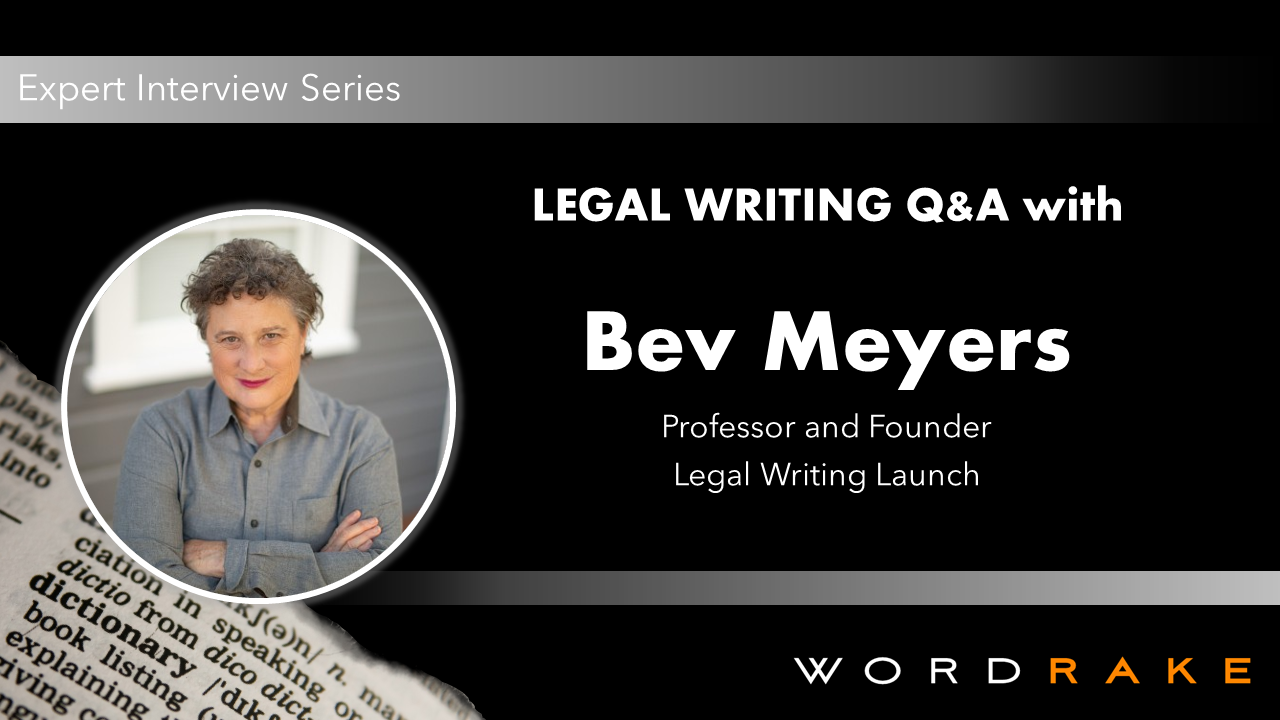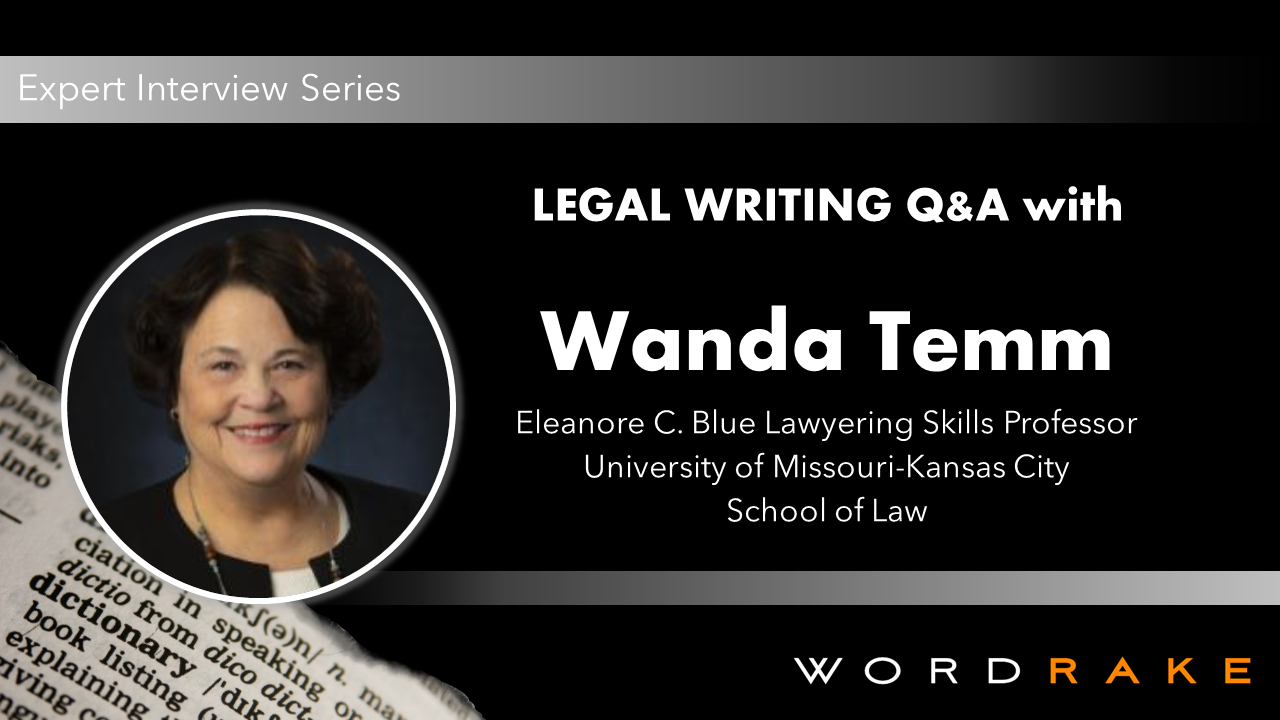What do you do when you’ve retired from the state attorney general’s office and you’re looking to do good in the world? For Professor Bev Meyers, the answer was to solve a problem she’d seen in practice—how to make legal writing better. Professor Meyers created the Legal Writing Launch program to teach lawyers to write well in every circumstance, and she shared her process with us.
Continue readingWordRake Staff
Recent Posts
Some people are born to teach, and Professor Wanda Temm is one of them. Ever since she was a child, Professor Temm has been passionate about learning and teaching. Legal writing is a complex topic, but Professor Temm’s confidence that her students can learn to write well makes her the perfect person to ask how lawyers can learn to write.
Continue readingEvery year WordRake celebrates International Plain Language Day by talking to experts and sharing some of their wisdom on our blog. Today we’re interviewing plain language expert and instructor Kate Harrison Whiteside, one of the fantastic founders of the holiday, about her passion for clear communication.
What is your role and how is it connected to plain language?
I currently wear several hats, and as a hat lover I am happy wearing them all. I am Director of and an instructor with the PlainLanguageAcademies.com. It’s been very exciting to grow with our online training platform to include French and Spanish academies, courses by South African plain language specialists and our students from around the globe.
Continue readingLegal dramas are full of hot-headed lawyers overflowing with righteous indignation, ready to steamroll injustice by the force of their convictions. The courtroom scenes play out with biting repartee and shouts of “objection!” until at last the verdict is revealed, and the “good guys” walk away with their hard-earned, well-deserved victory. Opposing counsel glares as our heroic lawyer marches triumphantly to a waiting crowd of excited reporters and shares the good news.
Continue readingIf your job requires you to write regularly, consider your readers and today’s changing exposure to words when drafting your work. With every day’s onslaught of content from emails, text messages, social media, and meetings—both on and offline—modern office workers don’t have the time or patience to read unnecessary words to get to your point. Wordy writing is a great way to get someone to close an email or dump a proposal without finding out what it’s about.
Continue readingSmall changes make a big difference in your writing’s clarity and brevity. One of the best professional writing tips is to simplify. Simpler is better for sentence structure, word choice, and document length.
Continue readingNo matter how many times you’ve done it, writing a proposal is always a little nerve-wracking. Whether you're applying for grant funding or pursuing professional services contracts, pressure to distinguish your organization from the competition and show your expertise is high.
Continue readingLet's Talk About Business Jargon
Business jargon, also known as business-speak or corporate jargon, is rampant in the workplace. While you may think you’re reinforcing your insider status or using a fun turn-of-phrase to efficiently make your point, you may be perpetuating harmful stereotypes and otherwise diminishing your message. So here’s the rule about how and when to use tacky jargon to improve your communication: Don’t use it.
Continue readingTraditional, honorable, and deferential are common descriptors for communication in the legal profession. Each word conjures thoughts of the formal and respectful tone which is used throughout legal writing—especially pleadings like briefs, motions, declarations, and responses. Embracing formality in legal writing does not require dense legalese or overly complex language, but it does require excluding casual expressions or colloquialisms.
Continue readingRemote work makes effective communication more important than ever. One of the most common communication methods is email—yet email can be tricky to get right. We often stumble with tone, focus, clarity, and brevity. Since email is vital to business, we must get better at writing emails for our reader’s benefit. Only our readers determine whether we have succeeded.
Continue reading













